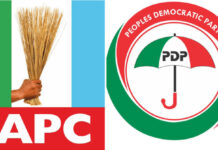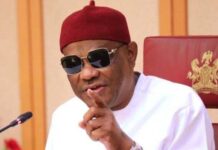*Say presidential system too expensive, unproductive
*Propose constitution amendment bill
Henry Omunu, Abuja
Seventy – one House of Representatives members on Thursday proposed a constitution amendment bill to jettison the presidential system of government for the parliamentary system practiced during the first republic after independence.
The constitution alteration bill sponsored by Hon. Kingsley Chinda and 70 other House members scaled first reading tiday at plenary and is awaiting debate of the general principles of the bill at the second reading scheduled for a latter date.
Shedding light on reasons for proposing a return to the post – independence system of government, Secretary of the bi – partisan House members, Hon. Ossai Nicholas Ossai informed journalists that they are convinced to suggest a change in system of governance because of the compelling advantages of the parliamentary system over the presidential system.
Hon. Ossai said studies have shown that countries running the presidential system of government record zero point output growth, have higher and volatile inflation rate, greater income inequality, high unemployment rate, political and economic instability and are bogged by the slow passage of legislation as against nations running the parliamentary system.
“While out growth under parliamentary system clock from one point and above, in countries running the presidential system inflation is on average six percentage point higher than those under parliamentary regimes.
“Income inequality under the presidential systems are worse when compared with that of parliamentary or hybrid systems of government,” he stated.
The lawmaker added that presidential regimes consistently produce less favourable macro – economic outcomes and that consensus building often required for economic decision is lacking.
Also, he declared that the over – centralization of government decisions prevalent in the presidential system obstructs economic development, just as the level of instability and volatility makes it difficulty to achieve economic objectives.
According to the House member from Delta state, Nigeria witnessed tremendous growth in the 60s under the parliamentary system, but added that the military foisted on the country the expensive presidential system that hasn’t yielded any positive results.
He further contended that the too powerful nature of the presidential office, often leads to greater economic fluctuations and sharper electoral cycles.
“Parliamentary systems help in quick passage of economic bills due to the fusion of power that it embodies.
“The decentralization of powers in parliamentary system help to douse tensions in countries where ethnicity, race, religious differences and ideological divisions are prevalent, thereby promoting peace and unity.
“Parliamentary systems promote inclusion and collectiveness which is critical to equality in income distribution and opportunities,” Ossai said.











